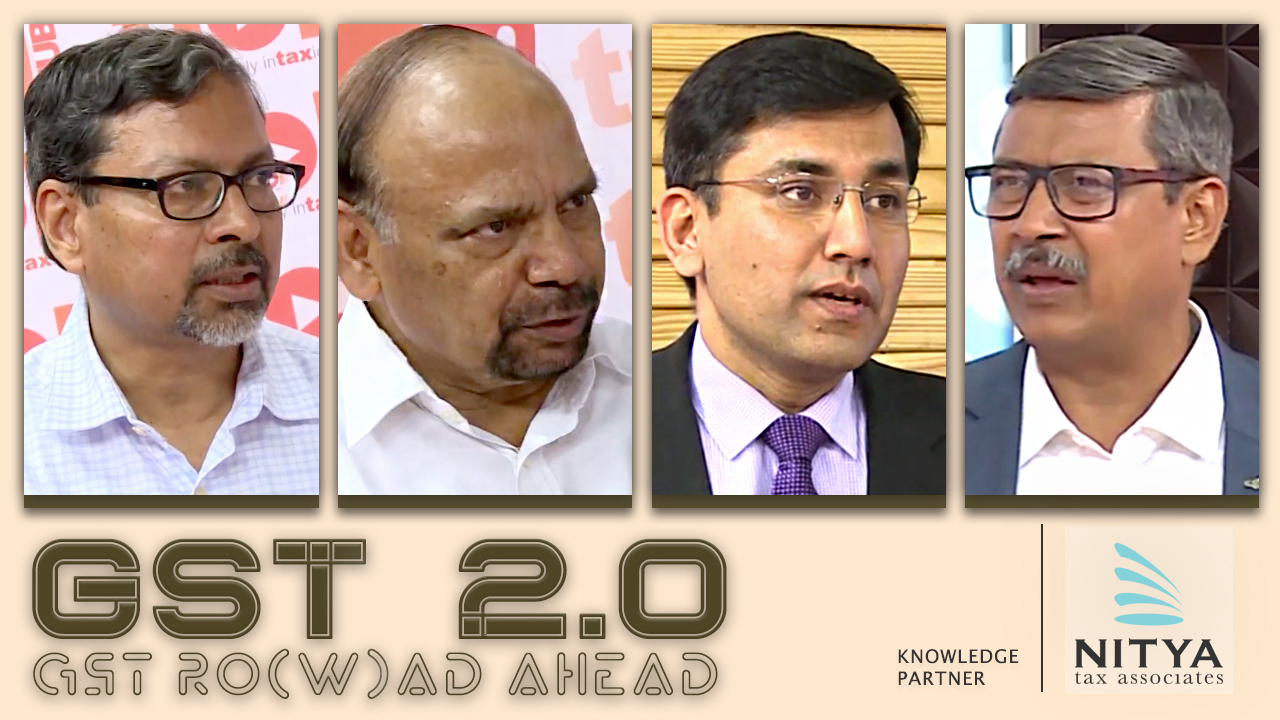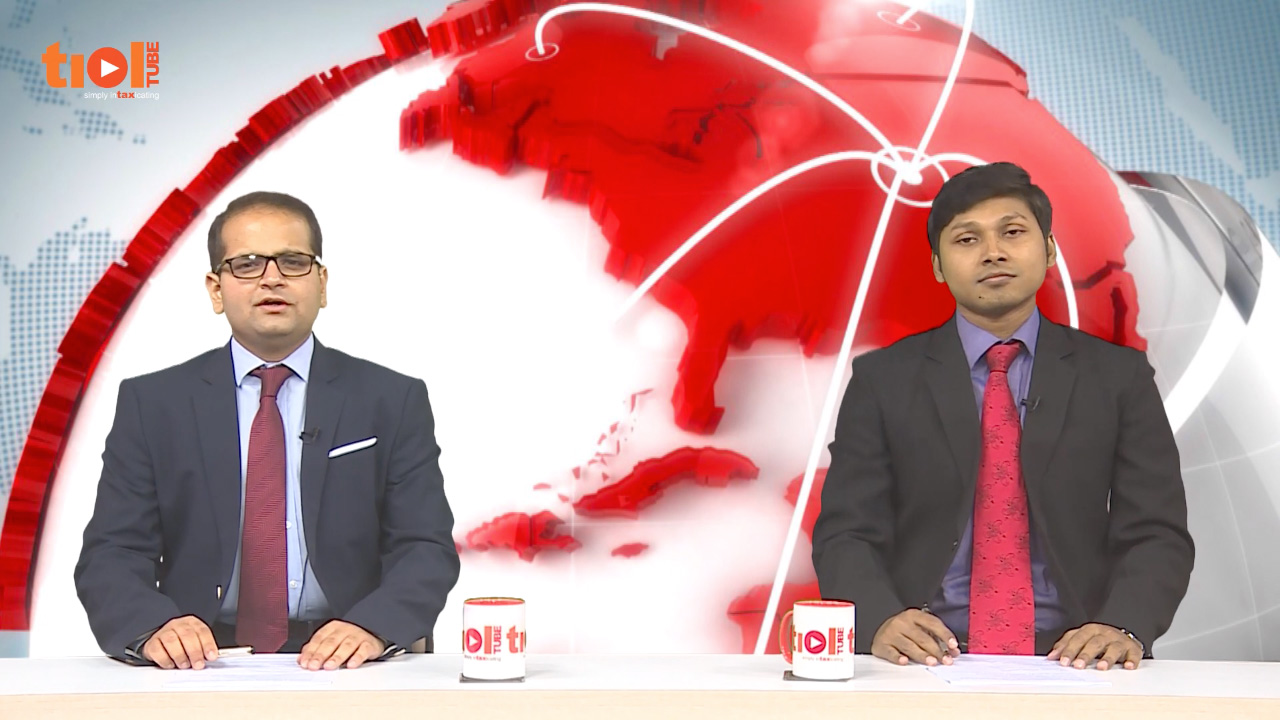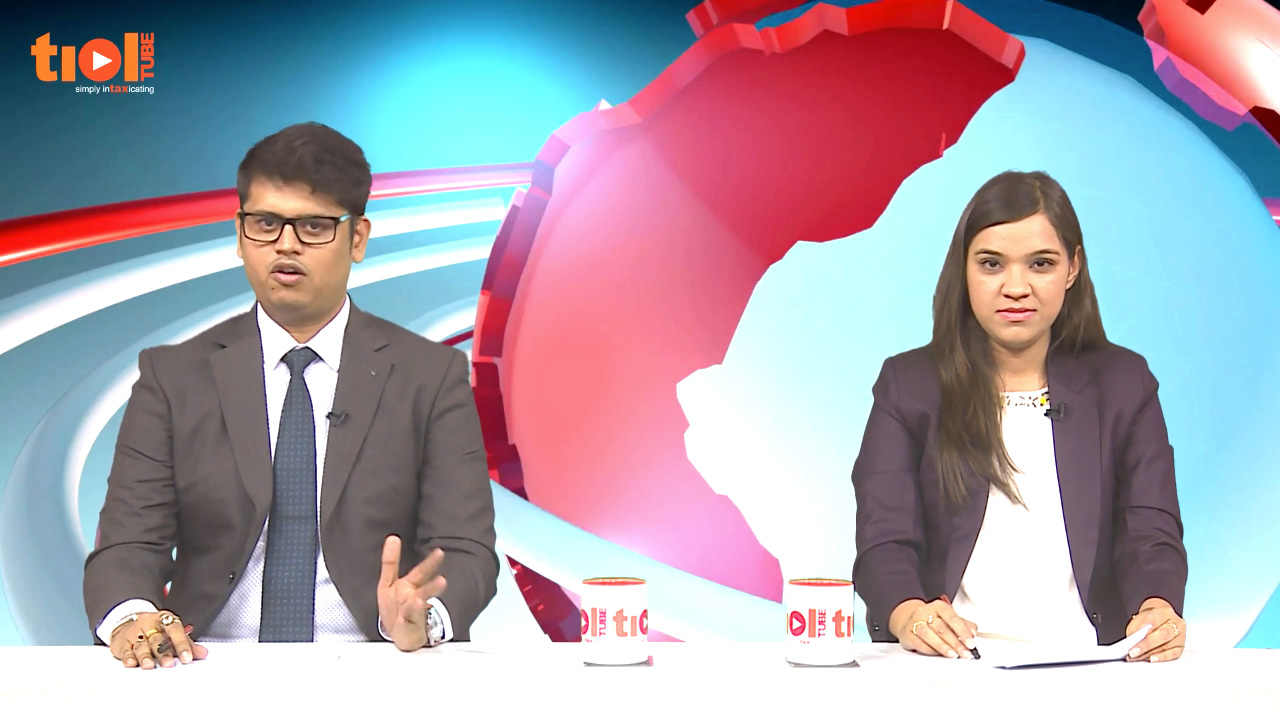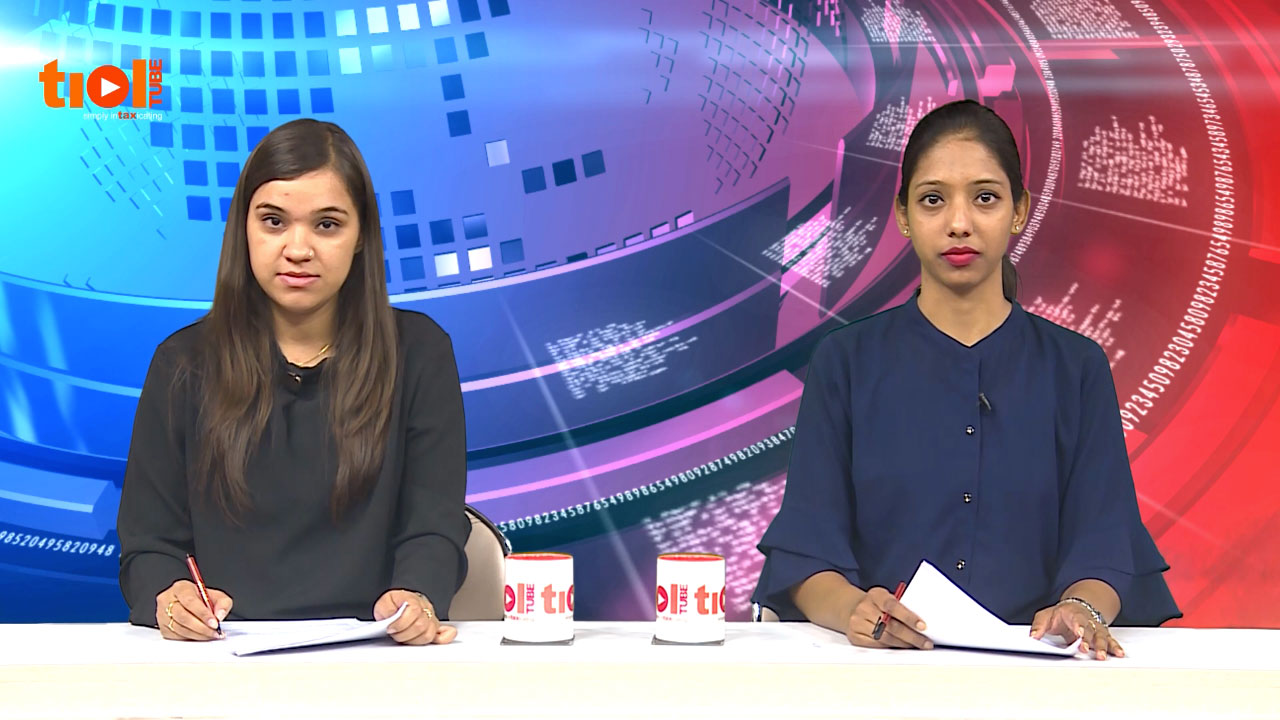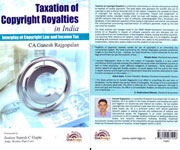|
SERVICE TAX
2019-TIOL-1543-CESTAT-AHM
Krishna Engineering Works Vs CCE & ST
ST - The assessee-company claimed to have provided mechanical services & other associated work for offsite & utilities for the upgradation project at Gujarat Refinery of Indian Oil Corporation Ltd, Vadodara, being undertaken by one M/s Furnace Fabrica (India) Ltd - Hence the assessee claimed to be a sub-contractor & on account of which no service tax could be fastened upon it, more so where the main contractor had furnished a certificate that the service tax liability for works contract, had been discharged.
Held: Liability of main contractor - The Finance Act 1994 places liability on each service provider separately & independently - The CCR takes credit of payable service part in so much as that service tax paid by person providing service to service recipient is available as cenvat credit to the service recipient - Such credit can be used by the service recipient to discharge tax liability - The CBIC issued Circulars prescribing that in respect of certain services, the sub-contractors were not obliged to pay tax - In the certificate issued by M/s Furnance Fabrica, it is unclear as to whether service tax is paid on the entire value of service or if it is entitled to Cenvat credit of the service tax paid by the assessee - Hence it cannot be said that levying service tax on the assessee herein amounts to double taxation - Its argument that if service recipient is paying tax, such service provider would be exempt from payment of tax would destroy the entire structure of all the service tax law - Hence its arguments of having no service tax liability cannot be accepted: CESTAT (Para 5)
Held: Works contract - The assessee also claimed to have provided Works Contract Service, on account of which it claimed that no tax liability arose for period prior to 01.06.2007 - From the work order placed by the main contractor, it is seen that the same is essentially work order for services - The issue here is whether inclusion of value of consumables in the service would convert all items of service into works contract - Consumption of goods by service provider during the provision of the service does not automatically convert the service into work contract - If scope of work contract is extended to including consumables then there will be no service which can fall outside the purview of work contract - Hence the consultancy service provided by engineer or advocate involves consumable like Paper, Ink, Pen, etc., service provided which are inclusive all the value of consumable cannot be treated as work contract - Appeal fails on both counts: CESTAT (Para 6)
- Assessee's appeal dismissed: AHMEDABAD CESTAT
2019-TIOL-1542-CESTAT-MAD
Voora Shreeram Construction Pvt Ltd Vs CCE & ST
ST - The assessee is registered with department for providing services under category of "Commercial or Industrial Construction Service" and "Construction of Complex Service" - On scrutiny of records, it emerged that assessee had not discharged their service tax liability for period from 4/2007 and have not added the monetary value of free materials supplied by their client in gross amount for payment of service tax - The issue as to whether a composite contract involving provision of service as well as transfer of property in goods could be covered under CICS and RCS from the date of introduction of service tax levy on such services stands finally settled by Supreme Court in case of L&T Ltd. - 2015-TIOL-187-SC-ST - For the period after 01.06.2007, the Chennai Bench of CESTAT in case of M/s.Real Value Promoters Pvt. Ltd. & Ors. - 2018-TIOL-2867-CESTAT-MAD have extrapolated the ratio laid down by Apex Court in M/s.Larsen & Toubro Ltd. and held that even after 01.06.2007, service tax liability for composite contracts can only be demanded under Works Contract Service and not under CICS - For this reason, the impugned order demanding the amount of tax liability under CICS for a composite contract will not survive and will require to be set aside: CESTAT
- Appeal allowed: CHENNAI CESTAT
CENTRAL EXCISE
2019-TIOL-1144-HC-MEGHALAYA-CX
Manik Choudhury Vs CCE, C & ST
CX - Assessee admittedly has been providing vehicles on hire to North Eastern Electric Power Corporation Ltd. (NEEPCO) which activities of assessee fall within the category of "Rent-a-cab-service" but had not paid the service tax w.e.f. 01.04.2002 - The question in essence for determination is as to whether SCN dated 27.03.2008 issued by Revenue was barred by limitation - The Commissioner (A) has held that it was barred by limitation whereas, Tribunal has concluded that the assessee had suppressed the information therefore, SCN is not hit by limitation - The finding recorded by Commissioner (A) is absolutely in consonance with the facts and circumstances of the case - It is only when Revenue had the information about activities of assessee of providing vehicle on hire, a notice in year 2004 was issued asking him to get registered within seven days - The notice was responded by assessee wherein he had made clear that he is not the owner of any "tourist vehicle" or a "tour operator" - It appears that the Revenue thereafter has not chosen to initiate any action - When it is so, can it now lie in the mouth of the Revenue that the assessee had suppressed the facts of providing vehicles on hire to NEEPCO, answer has to be in the negative - From the record nothing is forthcoming so as to substantiate the action of Revenue in sleeping over the matter for a period w.e.f. 2004 till 2006 and then on 27.03.2008 when SCN was issued - SCN having been admittedly issued after the prescribed period of one year was clearly barred by limitation as rightly concluded by Commissioner (A) - The Tribunal has not gone into details of the matter, simply by referring to the finding of Commissioner (A) then to differ with the same by referring to the letter dated 16.03.2004 would suggest that other details have escaped the attention of the Appellate Tribunal - The order of Tribunal is not sustainable - The order of Commissioner (A) dated 03.12.2010 being well reasoned and logical is restored: HC
- Appeal disposed of: MEGHALAYA HIGH COURT
2019-TIOL-1544-CESTAT-CHD
JCT Ltd Vs CCE
CX - The assessee is in appeal against impugned order wherein the refund claim has been rejected as time barred - It is brought in the knowledge of bench that at the time of finalization of provisional assessment, it was observed by adjudicating authority that the assessee has paid excess duty also in certain cases, but no refund claim has been granted for that - Further, the dispute travelled upto this Tribunal and this Tribunal hold that the assessee has not short paid any duty - In that circumstance, the refund claim was required to file within one year from the date of the receipt of the order of this Tribunal and the assessee has filed the refund claim within one year of the date of receipt of the order of this Tribunal - Therefore, the refund claim filed by assessee is within time, but no opportunity of being heard has not given to the assessee - The matter is remanded back to the adjudicating authority for consideration of the refund claim on its own merit and the same cannot be rejected being time barred: CESTAT
- Appeal disposed of: CHANDIGARH CESTAT
2019-TIOL-1541-CESTAT-BANG
Bmm Ispat Ltd Vs CCT
CX - The assessee is engaged in manufacture of sponge iron lumps, MS billets and TMT bars - During initial scrutiny of ER-1 returns for the month of November 2014, it was noticed that the assessee has wrongly availed CENVAT credit on structural steel items like HR coil and SS Plates inasmuch as the said items do not fall within the ambit of neither input nor capital goods definition of CCR, 2004 - The only ground on which the original authority has denied the CENVAT credit is that the assessee has not produced the documentary proof of usage of impugned goods - Further, assessee had produced the documents before appellate authority but the Commissioner (A) refused to consider those documentary evidence on the ground that the same has not been produced before the original authority and the original authority did not had an occasion to examine those documents - The matter is remanded back to the original authority: CESTAT
- Matter remanded: BANGALORE CESTAT
CUSTOMS
2019-TIOL-1152-HC-DEL-CUS
Lok-Beta Pharmaceutical India Pvt Ltd Vs UoI
Cus - Petitioner fulfilled its export obligation both in respect of quantity as well as value but beyond the export obligation period of twelve months - Petition has challenged the decision of the Policy Relaxation Committee (PRC) to not extend the export obligation period in respect of the Advance Authorisation held by them.
Held: Petitioner was fully aware while accepting the advance authorization and importing the products that it would require to perform the export obligation within a period of twelve months - It is possible that the petitioner has faced commercial difficulties, however, that would not be a ground to extend the export obligation period from twelve months to three years (thirty six months) - It is also well settled that the relaxation of the policy is not a matter of right - Sufficient discretion is granted to the DGFT to relax any provision of the policy or procedure as it deems fit - in terms of paragraph 2.5 of the Foreign Trade Policy 2009-2014 (FTP), DGFT has a wide discretion to grant any relief or relaxation as is clear from the use of the word "as he may deem fit" - However, such relief/relaxation can be granted in cases of "genuine hardships" and "adverse impact on trade" - Normal risks and vagaries of commerce would not qualify as genuine hardship - An applicant taking an extended risk of importing against Advance Authorization without a confirmed export order or an assured export market, would find it difficult to justify his request for relaxation of policy under paragraph 2.5 of the FTP - In order to invoke the powers of relaxation, the applicant must establish that his cause of hardship is on account of circumstances, which could not be reasonably anticipated by a person engaged in the trade - Court is unable to accept that the decision of the PRC to deny extension of export obligation period is perverse, arbitrary or falls foul of the guidelines as indicated in paragraph 2.5 of the FTP - Fixing an export obligation is not a matter of procedure but is a substantive condition for availing duty-free imports against advance authorization - The stipulation to the export obligation period cannot be considered as directory - It is a condition stipulated for availing of the facility of advance authorization, and such stipulation cannot be ignored merely because the petitioner has exported the stipulated quantity of goods beyond the period as specified - Petition is unmerited, hence dismissed: High Court [para 22, 23, 25, 26, 27, 29]
-
Petition dismissed
: DELHI HIGH COURT
2019-TIOL-1540-CESTAT-KOL
CC Vs I Serve Solutions And Services Pvt Ltd
Cus - The Revenue filed the present appeal to challenging the dismissal of its appeal during adjudication.
Held: As on the date of passing such order, the Revenue applied for Extended Producer Responsibility authorization certificate from the Central Pollution Control Board and all the relevant documents were filed before the Adjudicating Authority - Such order is not without jurisdiction: CESTAT
- Revenue's appeal dismissed: KOLKATA CESTAT |



